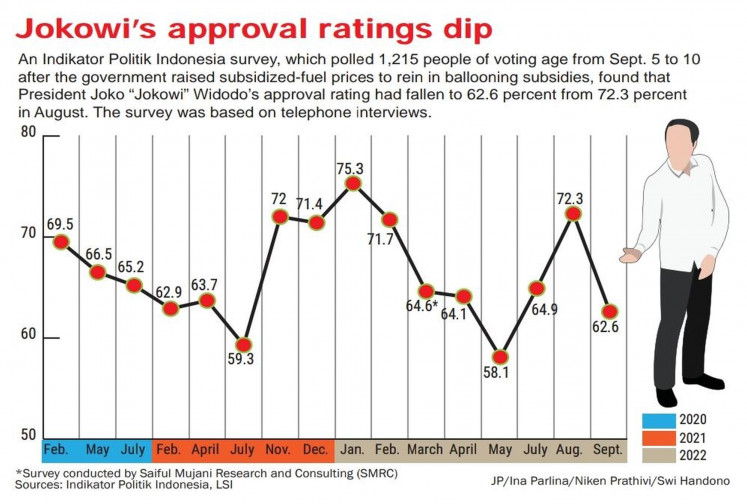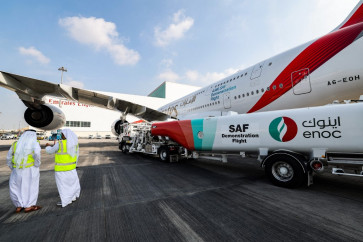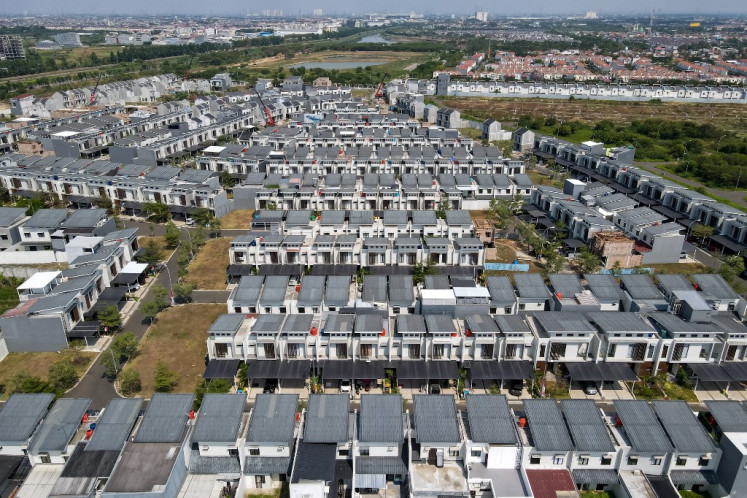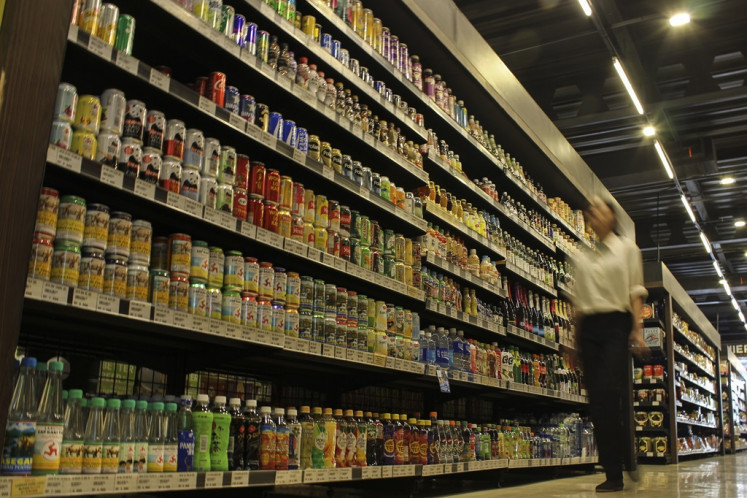Fuel price hike hits Jokowiʼs popularity
Majority of survey respondents remain unhappy with cut to fuel subsidies.
Change Size

T
he latest public opinion poll found that President Joko “Jokowi” Widodo’s approval rating has taken a 10 percentage-point hit, as a result of his administration’s decision to raise subsidized fuel prices. While the drop is not yet an immediate cause for alarm, experts have said more needed to be done by Jokowi to keep his approval rating from plummeting even further.
An Indikator Politik Indonesia survey, which polled some 1,200 respondents across the country between Sept. 5 and 10, two days after the fuel price hike announcement, found that Jokowi’s approval rating now stands at 62.6 percent.
The figure is a 9.7 percentage-point drop for Jokowi’s popular rating, which previously stood at 72.3 percent, according to a previous Indikator survey done in August.
“Jokowi is shrewd enough to carry out this unpopular policy when his approval rating is high,” Indikator Politik executive director Burhanuddin Muhtadi said on Sunday.
“We would have an entirely different issue on our hands had Jokowi decided to raise fuel prices in May [when his approval rating was at 58 percent],” Burhanuddin went on to say, adding that an approval rating below 50 percent is commonly considered to be a crisis for most presidents.
While a majority of respondents still disagreed with the fuel price hike, the survey found that there has been a 6 percentage-point increase in the number of respondents who supported the decision, from 18 percent in the August survey to 24.1 percent.
One of the factors for the shift in public opinion, Burhanuddin said, was due to an increase in public awareness that fuel prices globally were still more expensive than in Indonesia even after the government increased the prices of subsidized fuels.
“I think Jokowi now needs to go all out to mitigate the impacts of the fuel price hike […] He does not want to have a crash landing [when his term ends] in 2024. To do that, he needs support from his coalition, which comes from a good approval rating,” Burhanuddin said.
The government said it had no choice but to cut subsidies of Pertalite gasoline and Solar diesel brands on Sept. 3 to rein in ballooning energy subsidies despite the risk of mass protests and amid rising food costs with the economy still reeling from the impacts of the pandemic.

Wave of protests
While the latest Indikator survey indicates that Jokowi is not yet in a popularity crisis, the government’s fuel price hike has still been met with a wave of demonstrations in some parts of the country that began earlier this month, before and after the price hike announcement.
In Jakarta, for instance, protests were concentrated in front of the House of Representatives building on Sept. 6, spearheaded by several university student organizations and labor organizations, as well as the newly formed Labor Party, which has registered to contest its first general election in 2024.
Party chair Said Iqbal, who also heads the Confederation of Indonesian Trade Unions (KSPI), at the time said that labor unions would continue to hold nationwide protests until the end of the year if the government did not revoke the price hike.
Political analyst Firman Noor of the National Research and Innovation Agency (BRIN) said on Monday that Jokowi needed to communicate more with the country’s labor unions, particularly since they were the most prone to losing their jobs as a result of the fuel price hike.
“It’s not only from the fuel price increase, but there has also been inflation for other staple goods. In this situation, we know that companies tend to cut their costs, so labor workers now have their source of income in jeopardy,” Firman said.
He said that Jokowi faced the risk of having his approval rating plummet even further if he did not provide more concrete solutions for labor workers.
Some political analysts have previously predicted that cash handouts – being distributed by the government to the poor to cushion the blow – give Jokowi a chance to recover from any potential hit to his approval ratings and maintain political stability if he manages to distribute social aid effectively and evenly.
Opposition voices
Indikator’s Burhanuddin said that Jokowi’s decision to raise fuel prices now was the correct decision, particularly since it would give enough time for his administration to fix the issue before the start of the campaign season next year ahead of the 2024 general elections.
“There would have been a huge political impact [for Jokowi if the fuel price hike happened next year], since political parties within his coalition would likely have wanted to dissociate themselves from an administration that rolled out such an unpopular decision that close to the polling date,” Burhanuddin said.
While members of Jokowi’s government coalition have so far remained in unison, opposition parties, particularly the Democratic Party, have begun to criticize the higher fuel prices.
Dems chair Agus Harimurti Yudhoyono slammed on Friday the government for being incompetent in handling the increasing inflation. Agus has rarely taken a strong stance against Jokowi since he took over the party from his father and former Indonesian president Susilo Bambang Yudhoyono.









